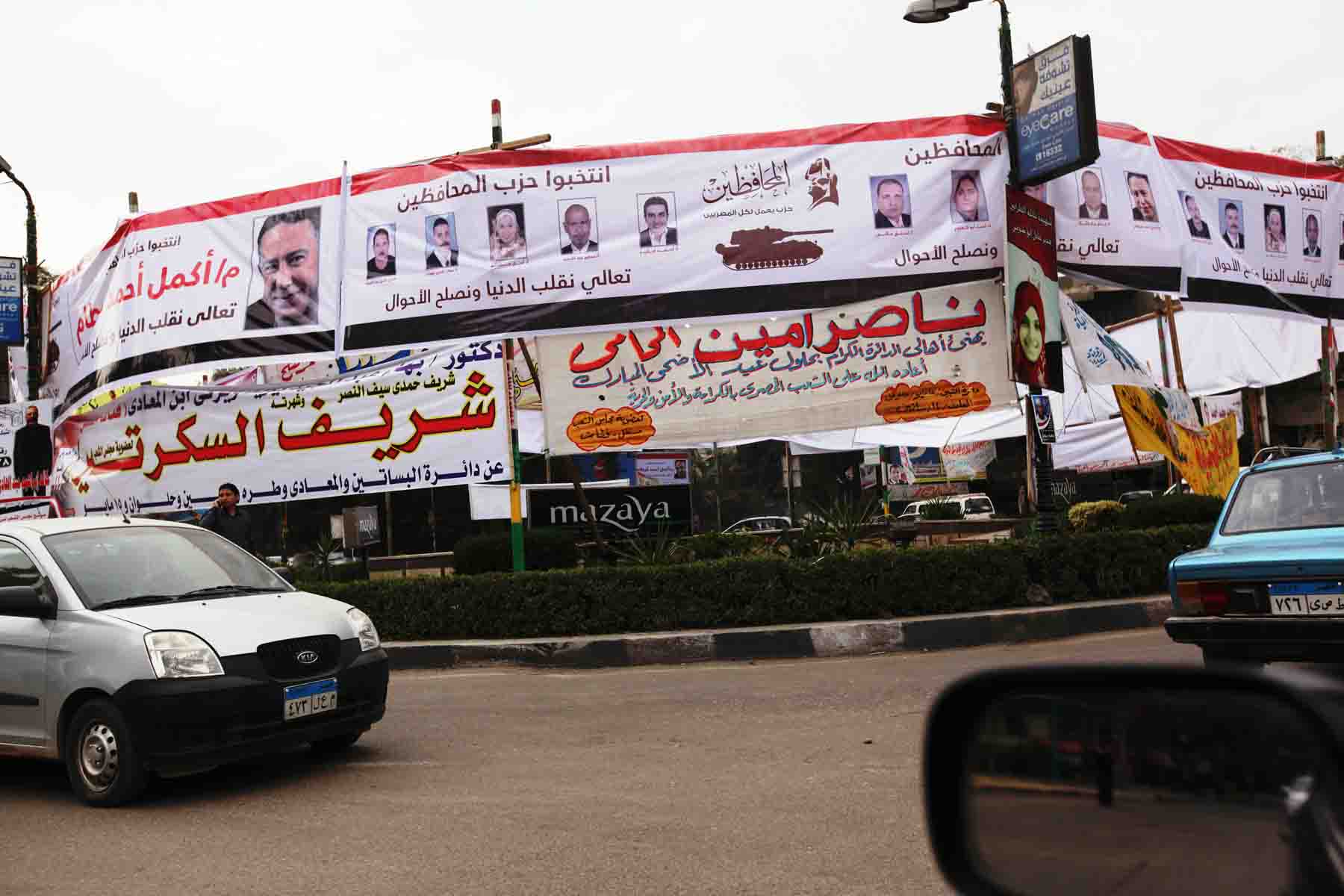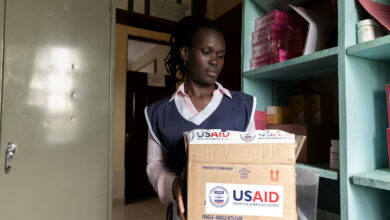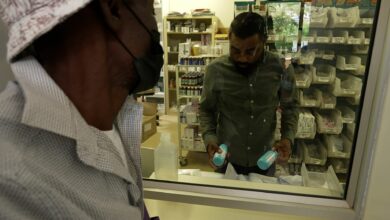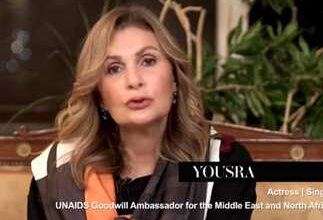
The trial of deposed President Hosni Mubarak, his sons and other former officials, are the subject of most of today’s headlines, although coverage is significantly less extensive than it was when the trial began in August — perhaps reflecting the public’s waning interest in what has become a drawn-out process of baffling legal procedures.
State-run Al-Ahram headlines a story with “WARNING: 2400 people living with AIDS in Egypt.” This is an increase in the number of AIDS cases according to Ihab Abdel-Rahman, director of the National AIDS Program.
In contrast to the alarmist headline, the story goes on to point out that “AIDS cannot be passed on through ordinary everyday practices such as hugs, kisses or sharing of food, drink or clothes.”
The Islamic Research Institute has filed a lawsuit with the public prosecutor to force the information minister to stop the Christian Karma satellite channel from broadcasting on Nilesat. The Islamic Research Institute alleges that the California-based Karma Channel defames Islam and the Prophet Mohamed, according to Al-Ahram.
Most local papers devote a few inches to the third and final stage of the upcoming elections, which begins on 3 January. Al-Ahram runs the results of an opinion poll conducted by its Center for Political and Strategic Studies, according to which third stage voters “will be more moderate and secular.”
According to the study, the Muslim Brotherhood’s Freedom and Justice Party (FJP) will make the same gains as in the previous two rounds, but fewer voters will choose the Salafi Nour Party and Egyptian Bloc coalition.
About 58 percent of second round voters polled described themselves as “Islamists,” compared with 55.4 percent of voters polled who are eligible to cast ballots in the third round. Another small difference was the percentage of second and third round voters polled who said they want an Islamic state: 48.6 percent and 51.5 percent, respectively.
Al-Ahram writes that the opinion poll also indicates a “continuing loss of civilian trust in the ruling Supreme Council of the Armed Forces (SCAF).” ًWithout explaining whether there is a link, it goes on to say in the same sentence that 50 percent of those polled are of the opinion that the “economic situation has deteriorated compared with how it was before.” The paper fails to specify the time period the poll refers to.
On its front page, privately owned Al-Shorouk reports that the SCAF is calling on any citizen with information about army or police abuses to give it to the military prosecution office. The military council is simultaneously telling citizens not to be misled by “rumors aimed at inciting the people, armed forces and police against each other,” according to the paper.
Columnist Amira Abul Fotouh pens an ode in the party paper Al-Wafd to the Egyptian military headlined, “Oh, great army of ours, don’t judge us by the actions of the idiots among us.”
Abul Fotouh goes on to write that “even the Zionist enemy” would not have insulted or committed the criminal acts against the Egyptian army that “they” (without specifying who) have committed.
The columnist inveighs against army humiliation at the hands of “a bunch of reckless, misguided kids and thugs and drug addicts,” and vigorously condemns the “media revolutionaries and satellite leaders and political thugs” who defend them.
On the following page, the leftist paper accuses French philosopher Bernard-Henri Levy of being a spy for Israel who visited Tahrir with nefarious intentions.
The article presents a long description of Levy’s career and his activities in the Middle East, but doesn’t describe the nature of his alleged espionage work in Egypt. Instead, it draws a link between his visit to Tahrir and the violence that broke out between security forces and protesters “only days afterward.”
Al-Dostour says that the Salafi Nour Party has rejected an invitation from Pope Shenouda, head of the Coptic Orthodox Church, to attend Christmas celebrations in January.
Nour Party spokesman Mohamed Nour is quoted as saying that “participation in this kind of celebration is against the party’s values and beliefs.”
Independent paper Youm7 wraps up 2011 with a 10-page chronicle of the eventful year, varying from the factual to the fanciful with an emphasis on graphics.
In its version of “What’s Hot and What’s Not” Youm7 presents five people on the rise (activists Alaa Abd El Fattah, Ahmed Harara and Ghada Kamal, Nour Party head Emad Abdel Ghafour, head of the FJP Mohamed Morsy) and five people on their way out (head of the Military Police Hamdy Badeen, SCAF general Mohsen al Fangary, former Prime Minister Essam Sharaf, former Minister of Information Osama Heikal and Salafi hardliner Abdel Meneim Shahat).
One story presents imaginary text messages “on 2011’s mobile phone” sent to people and things including Mubarak, TV personality Tawfik Okasha (who receives a rather catty message) and tear gas.
SCAF head Mohamed Tantawi gets the shortest message: “Leave and take your people with you.”
Egypt's papers:
Al-Ahram: Daily, state-run, largest distribution in Egypt
Al-Akhbar: Daily, state-run, second to Al-Ahram in institutional size
Al-Gomhurriya: Daily, state-run
Rose al-Youssef: Daily, state-run
Al-Dostour: Daily, privately owned
Al-Shorouk: Daily, privately owned
Al-Wafd: Daily, published by the liberal Wafd Party
Youm7: Daily, privately owned
Al-Tahrir: Daily, privately owned
Freedom and Justice: Daily, published by the Muslim Brotherhood's Freedom and Justice Party
Sawt al-Umma: Weekly, privately owned
Al-Arabi: Weekly, published by the Nasserist Party




